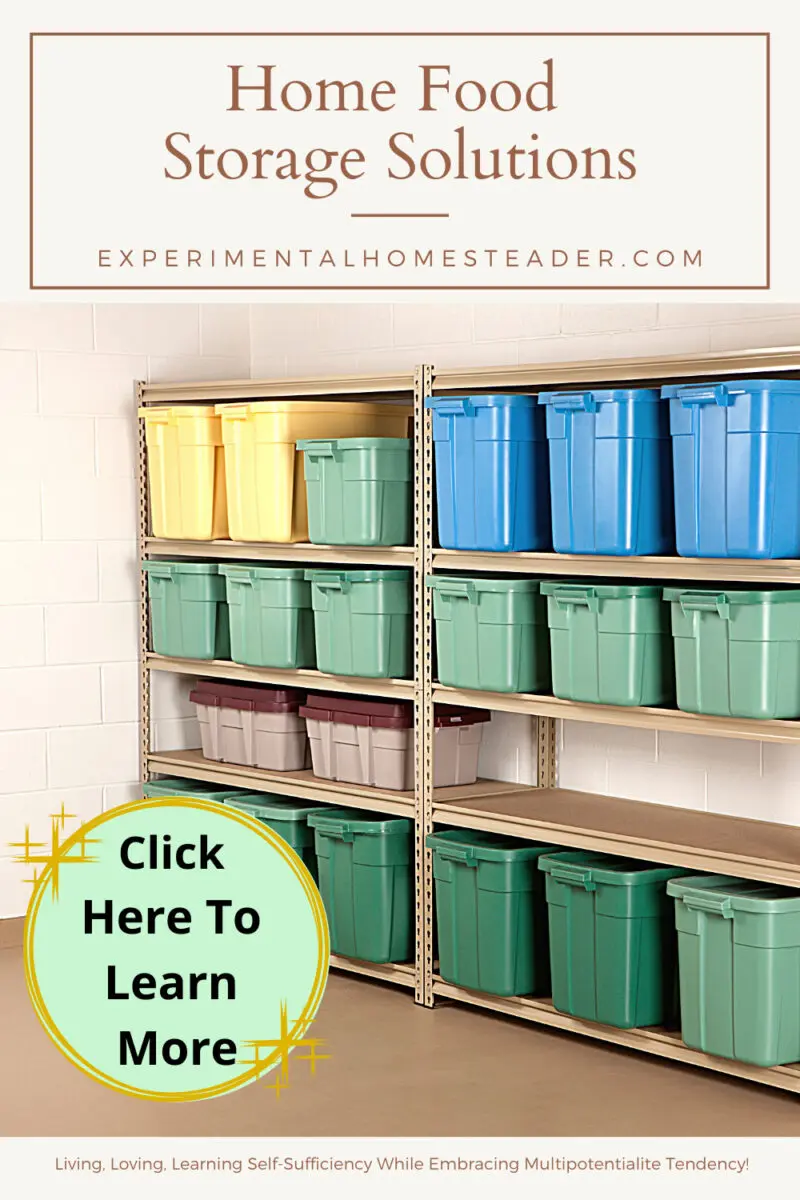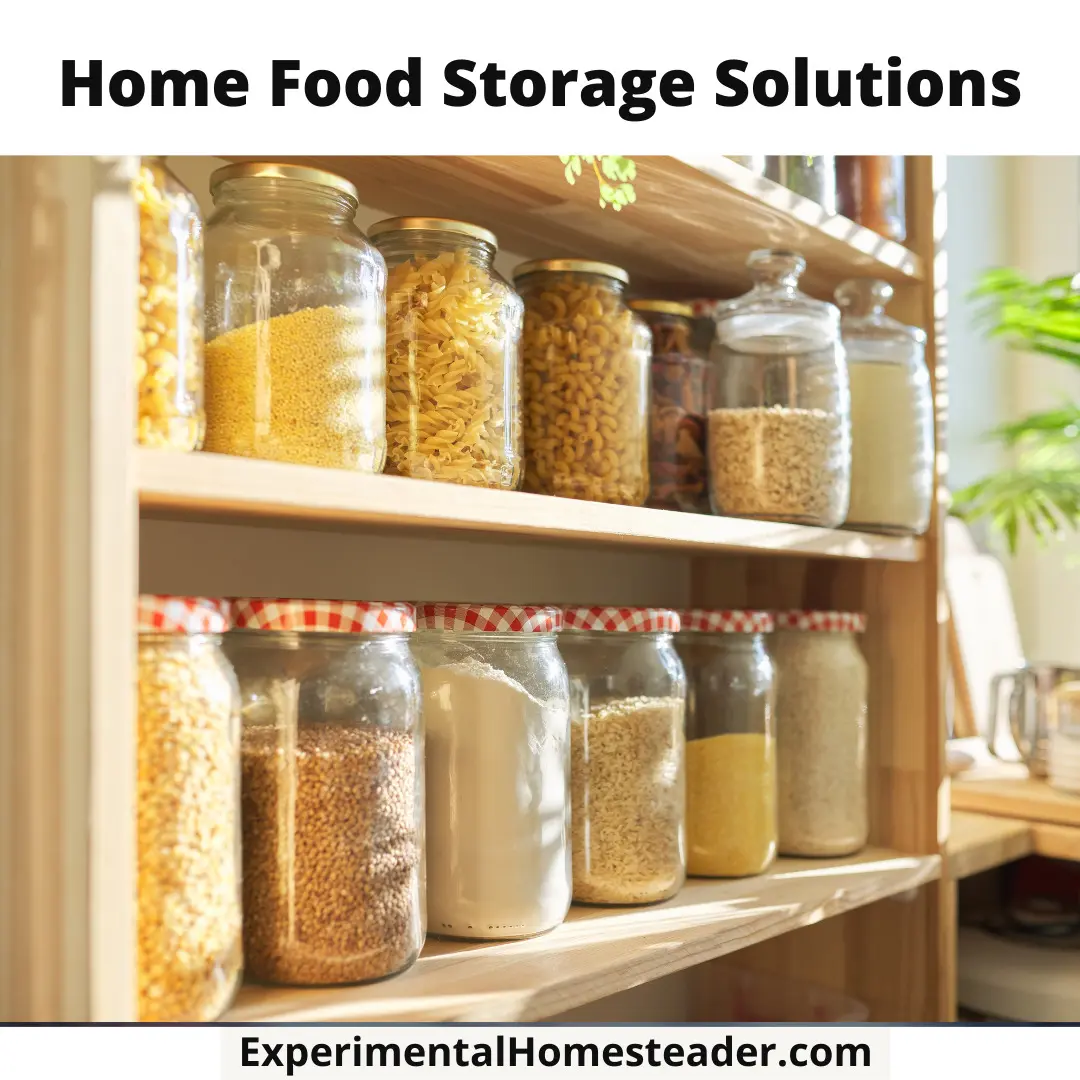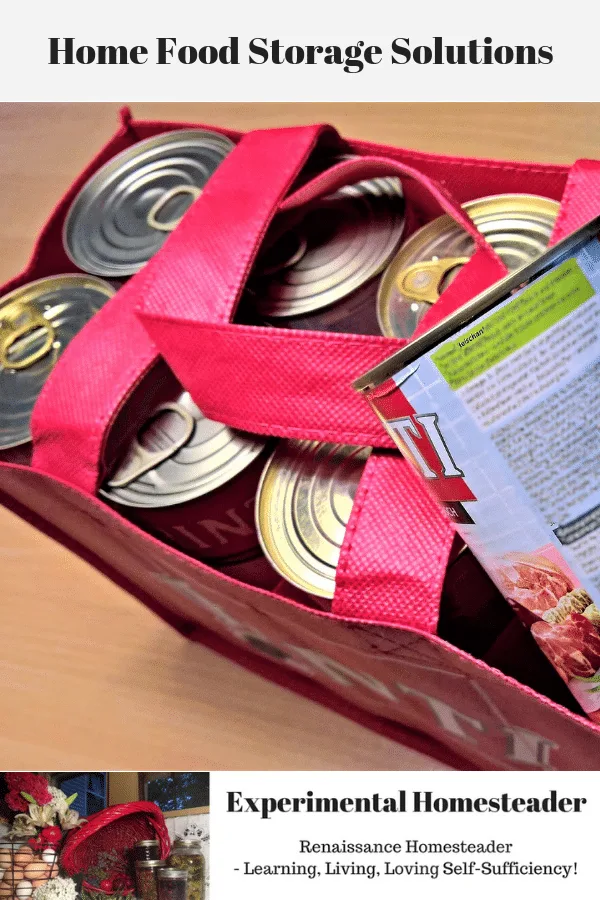Preppers and homesteaders often need, or want, home food storage solutions that are out of sight, but still easy for them to access.
Others might just want to stock up on their food supply for an emergency situation, but don't have a lot of space to store that food.
These home food storage solutions posts cover everyone from the person living in a tiny apartment to preppers who might have an entire basement at their disposal to create secret home food storage rooms!
Home Food Storage Solutions Are Important
When disaster strikes it often takes time for rescue workers to get to you, especially if the situation is dire.
Power lines often go down during natural disasters, thus any fresh or frozen food grocery stores, convenience stores or even restaurants have will spoil before it is possible to save it.
When larger power lines go down or there is extreme flooding, often there is simply no way to deliver a large amount of food to the area affected.
When natural disasters happen, it is crucial to have enough food and water stored to survive until help arrives.
It is even better if you have enough supplies to last until life is back to normal and yes, you can stock up on a budget!
Stock Up On Drinking Water First
Access to clean drinking water is your first priority.
Keep at least one gallon of water per family member per day on hand at all times.
At the very minimum you want to have a 3 day supply on hand along with a water filtration system or water purification tables so you can turn unsafe or potentially contaminated water sources into safe drinking water.
Water has a fairly long shelf-life, however it is a good idea to have a water rotation plan in place.
Use the water as needed on a daily basis and replace it with fresh water as you use your supply up.
Keep a few clean plastic or glass gallon jugs around and refill them with fresh water as you empty them.
For those who can, if your canner is not full, fill some canning jars with water, put the lid on them as you would if there was food inside the jars and put the jars of water in your canner.
Check to make sure the jars of water are sealed and set them in your pantry future use.
You can use the unused emergency drinking water to drink, water plants or cook with it.
Then Stock Up On Food
FEMA recommends that you keep a large enough food supply to last for up to two weeks if you're preparing for a natural disaster.
While this may seem like a lot of food, it really isn't.
The food supply should consist of items you normally use.
Consider building a well-stocked pantry and storing additional dehydrated food in your freezer.
You will use this food and replenish it, setting up a first in, first out system.
In other words move any canned goods you already have to the front of the row and put the new canned goods towards the back.
Keep the rotation system going so you are always using the oldest food first.
Dry rice, canned or dry beans, and various canned goods are good staple items with long shelf lives to keep around.
Avoid Being Overwhelmed When Planning Your Home Food Storage Solutions
If two weeks worth of food sounds too overwhelming or isn't possible because you simply don't have the room to store the food, start with enough food to last three days.
Hopefully emergency services will be able to reach you by the time you run out of what you have.
Eat What Is Fresh First In An Emergency Situation
When disaster strikes or the power goes out, start eating up any fresh food in the refrigerator or on the countertops.
Do not open your freezer at this point.
Food will safely stay frozen and cold in a closed freezer for at least 3 days.
Drape old blankets over the top and around the sides of your refrigerator and freezer.
Secure the blankets with rope, yarn or whatever you have on hand.
Doing this helps keep the refrigerator and freezer colder longer.
Avoid opening the freezer or refrigerator unless it is necessary to get food out and then if you must open it, close it back quickly.
Once you have consumed everything in your refrigerator start eating what is in the freezer.
Save any shelf-stable foods for last.
If you have a root cellar, now is the time to store fresh foods that would last longer in the root cellar to it.
Consider How To Prepare The Food
It is also helpful to have a way to cook food or even preserve excess food during a power outage.
Camping and grilling gear comes in handy during times of natural disasters.
You must however continue to follow all safe cooking practices, canning recipes and guidelines.
Make sure you have all the supplies you need well before you actually need it and make sure your equipment is in good condition.
Don't forget about pots, pans, cooking utensils and canning jars if you intend to try to can some of the food you have in your refrigerator or freezer.
Knowing how to cook and can over a fire comes in handy during emergency situations as does knowing how to use a solar cooker.
Here are some more recommendations for food storage guidelines and food storage solutions.
Food Storage Guidelines
Food Storage Solutions
10 Home Food Storage Solutions That Will Inspire You
<div
data-shortcode="mv_create"
data-attributes='{DQUOTEkeyDQUOTE:DQUOTE131DQUOTE,DQUOTElayoutDQUOTE:DQUOTEheroDQUOTE,DQUOTEtitleDQUOTE:DQUOTEFood
Food




